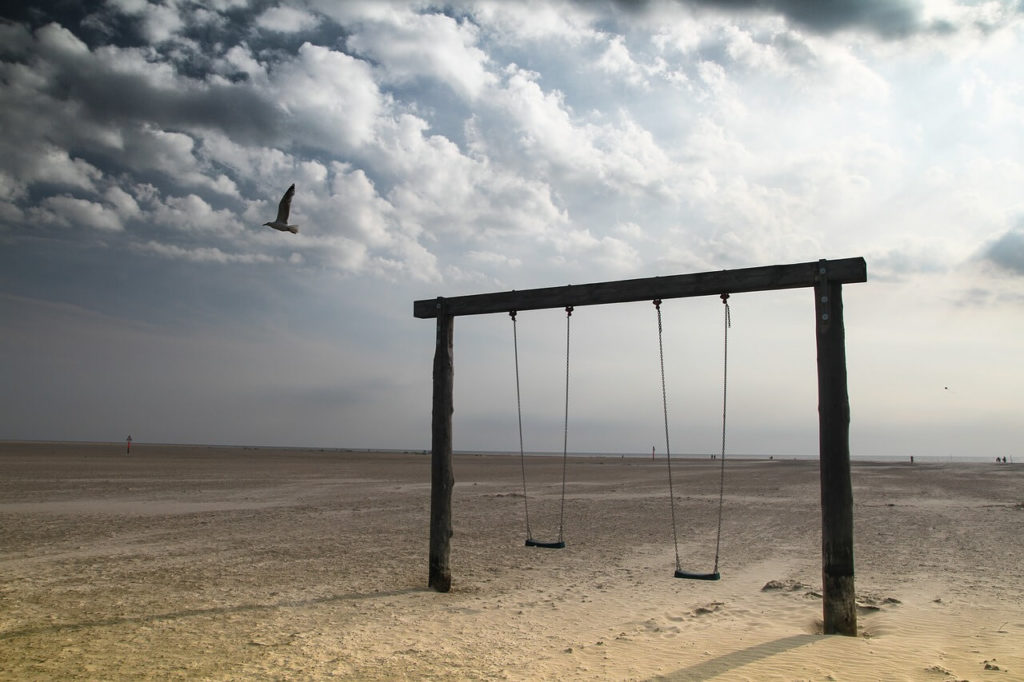
“If the only prayer you say in your life is thank you, that would suffice.” – Meister Eckhart
For many during this season, our thoughts often naturally turn to what we feel thankful for.
But if you’re like many of the people I’ve been with lately, whether clients, colleagues or friends, feeling thankful or even hopeful in our current political and social environment can feel challenging at times.
Naming gratitude can seem like a Pollyanna attitude of luxury for the privileged few who remain apolitical, clueless, or actively disengaged.
So how to find gratitude and hope – as a means of recharge and refueling, and informing our next actions – when you’re under stress, maxed out, or in some sense of despair due to current events?
Hold the opposites
One of my most memorable classes in graduate school was one on adult learning principles, taught by a woman named Jane Vella.
She was a tiny, dynamic woman, full of phrases and exclamations, as well as lots of practical experience in adult learning design.
When two seemingly conflicting ideas were brought up in her classroom, she’d stand with her arms upright in goal post position, her clenched fists shaking, and shout at us:
“Hold the opposites!”
What she embodied in that phrase and physical stance was that seemingly disparate things can be both be true; and that there is strength and wisdom in holding both competing poles at the same time.
That concept has stuck with me over the past 20 years for its simple and profound truth: that holding onto two very different beliefs or ideas, even ones that are seemingly in conflict with each other, can inform and actually help us.
I used this concept frequently over the past year, as I danced with a serious cancer diagnosis, facing many seemingly competing experiences or desires, such as:
- I have a serious cancer and I am very much alive, right now.
- I want to live for a long time, and I might not get to.
- I want to be hopeful and realistic about my ability to survive.
Learning how to hold multiple realities simultaneously helped me deal with the stress of the realities of my cancer, and still remain hopeful and grateful for what I did have, while also navigating the regular challenges of everyday living.
“Yes, and”
One skill that underlies an ability to hold multiple truths is a skill called “yes, and”.
Watch any comedian, whether a newbie or a seasoned professional, and you’ll start noticing how improvisers use “yes, and..” nearly constantly to marry often wildly different ideas together into a new, and hopefully hilarious, outcome.
Instead of needing to sort every concept into “agree” or “disagree” categories, “yes, and” allows us to find a part of any situation that we can get on board with. This is a practice of looking for what we can align with, rather than whether we completely agree with the entirety of it.
Most of us, particularly white folks, have been well trained from a young age to be rewarded for finding and choosing the “right” answer. When working in and with complex systems, rarely is there only one “correct” answer.
Using “yes, and” allows us to see the opportunities in multiple realities and harvest the best of seemingly competing ideas.
What it’s not
This practice of finding truth in multiple realities in ourselves, with others, or in broader society can be challenging at first. You may find it uncomfortable: that’s OK and actually to be anticipated. It just means you’re doing something different.
Just to be clear, practicing alignment is not about acquiescing, giving in, or going along to get along.
In fact, I’d suggest you hold your own truth strongly, as you examine other possible realities within yourself or others.
Understanding what you strongly believe in is important, so that you can also listen for and find the core beliefs in an opposing viewpoint.
Gratitude as a practice
Finding thankfulness and gratitude in the midst of challenging times isn’t a seasonal thing. It instead can be a practice to cultivate of looking deeply, and then responding.
Consider:
What’s currently going well for you? For the world?
What is there to be grateful for in your life, and in the world?
Where you or others are frustrated, angry, or despondent: what’s underneath?
What’s the underlying longing, desire, or core need you, others, or the world, has?
Where you have a longing is the work you are called to do in the world.
What you are grateful for is what you have to offer to the world’s heartbreaks.
Where these meet – by holding the opposites to find the alignment between the world’s longing and your gratitudes – is what is what the world needs from you, daily. And where I invite us all to act.
Loved this post?
Then use the icons below to tweet it, share it on Facebook and send it to specific friends via email.
And leave your email at the top or bottom of this page to be first to hear about more articles like this.
Photo credit: Pixabay

 Before specializing as a professional coach in 2004, I spent more than a decade in leadership, management and program development for state and local government and non-profit organizations. Now I get to help leaders and teams have more clarity and ability to stand up for what's important in their work and in their organizations. Working with me, leaders and teams find more meaning and purpose, feel happier and more confident, navigate change and conflict, and work together better.
Before specializing as a professional coach in 2004, I spent more than a decade in leadership, management and program development for state and local government and non-profit organizations. Now I get to help leaders and teams have more clarity and ability to stand up for what's important in their work and in their organizations. Working with me, leaders and teams find more meaning and purpose, feel happier and more confident, navigate change and conflict, and work together better.
Leave a Reply